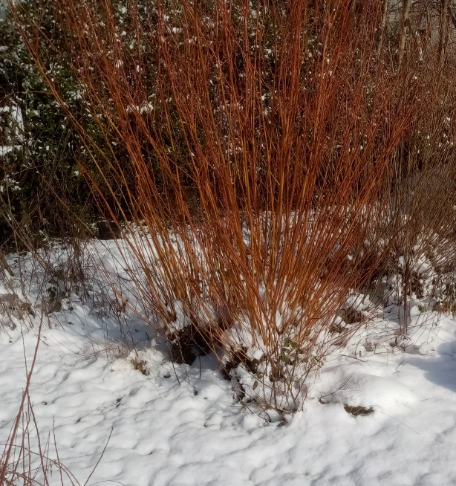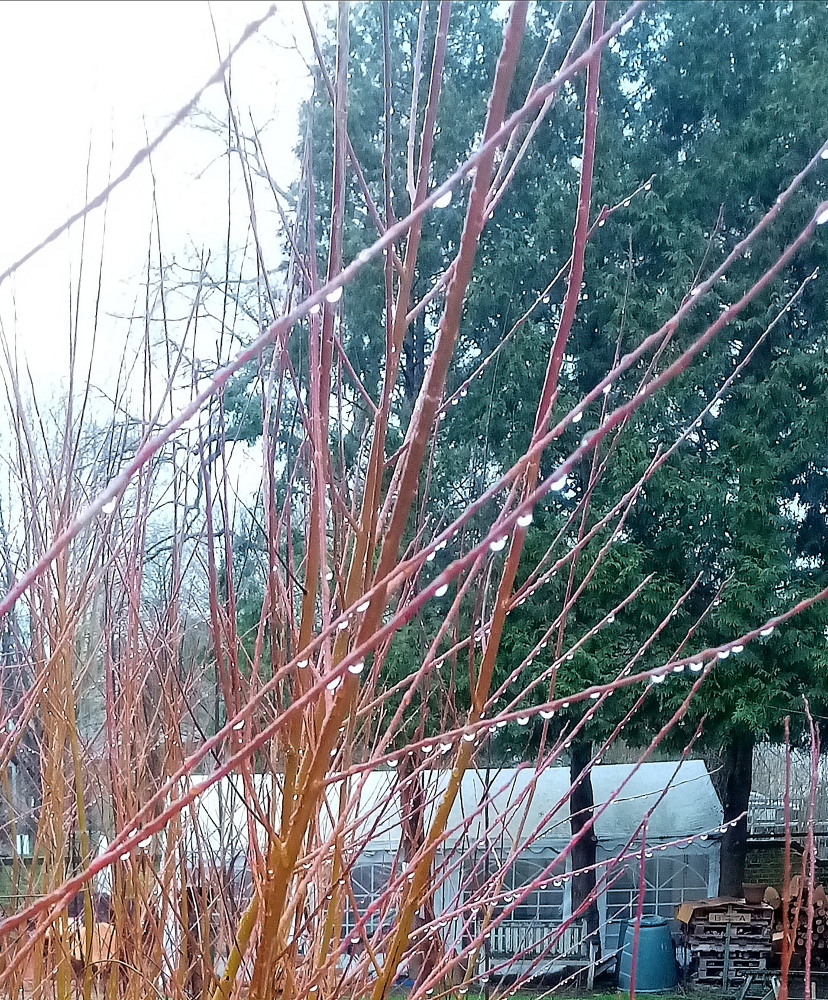
Willow wands growing through the snow. Calm after the storm.
Epistle to William Simpson Of Ochiltree
Ev'n winter bleak has charms to me, When winds rave thro' the naked tree; Or frosts on hills of Ochiltree Are hoary gray; Or blinding drifts wild-furious flee, Dark'ning the day! O Nature! a' thy shews an' forms To feeling, pensive hearts hae charms! Whether the summer kindly warms, Wi' life an' light; Or winter howls, in gusty storms, The lang, dark night! The Muse, nae poet ever fand her, Till by himsel he learn'd to wander, Adown some trottin burn's meander, An' no think lang: O, sweet to stray, an' pensive ponder A heart-felt sang. Three wintry verses from Burns to mark his day. The Sots dialect is not too difficult here, but just a couple of translations from our third verse. Fand: found. Burn: brook; it crops up in English place-names, Saltburn, Blackburn, etc..





